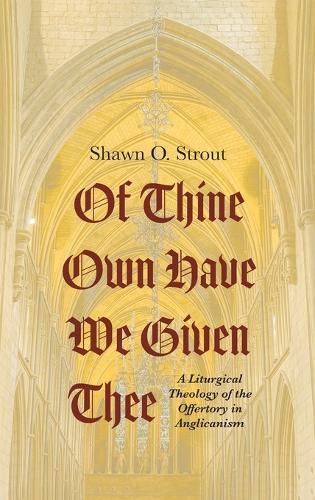Readings Newsletter
Become a Readings Member to make your shopping experience even easier.
Sign in or sign up for free!
You’re not far away from qualifying for FREE standard shipping within Australia
You’ve qualified for FREE standard shipping within Australia
The cart is loading…






This title is printed to order. This book may have been self-published. If so, we cannot guarantee the quality of the content. In the main most books will have gone through the editing process however some may not. We therefore suggest that you be aware of this before ordering this book. If in doubt check either the author or publisher’s details as we are unable to accept any returns unless they are faulty. Please contact us if you have any questions.
Every Sunday around the world, Christians offer money and in-kind gifts to the church, traditionally known as alms. For communities that celebrate the Eucharist regularly, bread and wine, traditionally known as oblations, often accompany these gifts. What does it mean theologically for Christians to offer gifts to God, who first offered the greatest gift of Jesus Christ? This question regarding the role of alms and oblations in the liturgy was among the most controversial questions of the English Reformations in the sixteenth century. While the eucharistic prayer proper has often been the site of this theological controversy, the offertory rite has also received great attention. The 1552 English Book of Common Prayer excised all references to oblation in the offertory rite, but oblationary language and actions, such as the offertory procession, returned in full force by the twentieth century. The movement from the near elimination of oblation in the offertory rite to its widespread usage in the churches of the Anglican Communion is a remarkable liturgical and theological development. Using liturgical theology's tools of historical, textual, and contextual analyses, this book explores how this development occurred and why it is important for the church today.
$9.00 standard shipping within Australia
FREE standard shipping within Australia for orders over $100.00
Express & International shipping calculated at checkout
This title is printed to order. This book may have been self-published. If so, we cannot guarantee the quality of the content. In the main most books will have gone through the editing process however some may not. We therefore suggest that you be aware of this before ordering this book. If in doubt check either the author or publisher’s details as we are unable to accept any returns unless they are faulty. Please contact us if you have any questions.
Every Sunday around the world, Christians offer money and in-kind gifts to the church, traditionally known as alms. For communities that celebrate the Eucharist regularly, bread and wine, traditionally known as oblations, often accompany these gifts. What does it mean theologically for Christians to offer gifts to God, who first offered the greatest gift of Jesus Christ? This question regarding the role of alms and oblations in the liturgy was among the most controversial questions of the English Reformations in the sixteenth century. While the eucharistic prayer proper has often been the site of this theological controversy, the offertory rite has also received great attention. The 1552 English Book of Common Prayer excised all references to oblation in the offertory rite, but oblationary language and actions, such as the offertory procession, returned in full force by the twentieth century. The movement from the near elimination of oblation in the offertory rite to its widespread usage in the churches of the Anglican Communion is a remarkable liturgical and theological development. Using liturgical theology's tools of historical, textual, and contextual analyses, this book explores how this development occurred and why it is important for the church today.